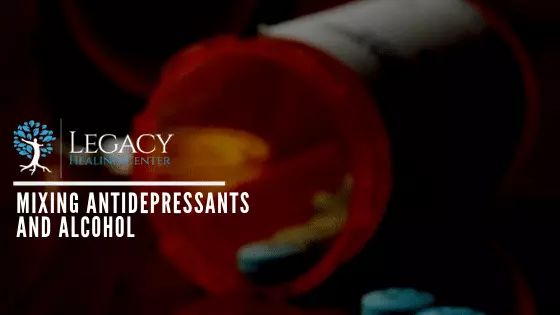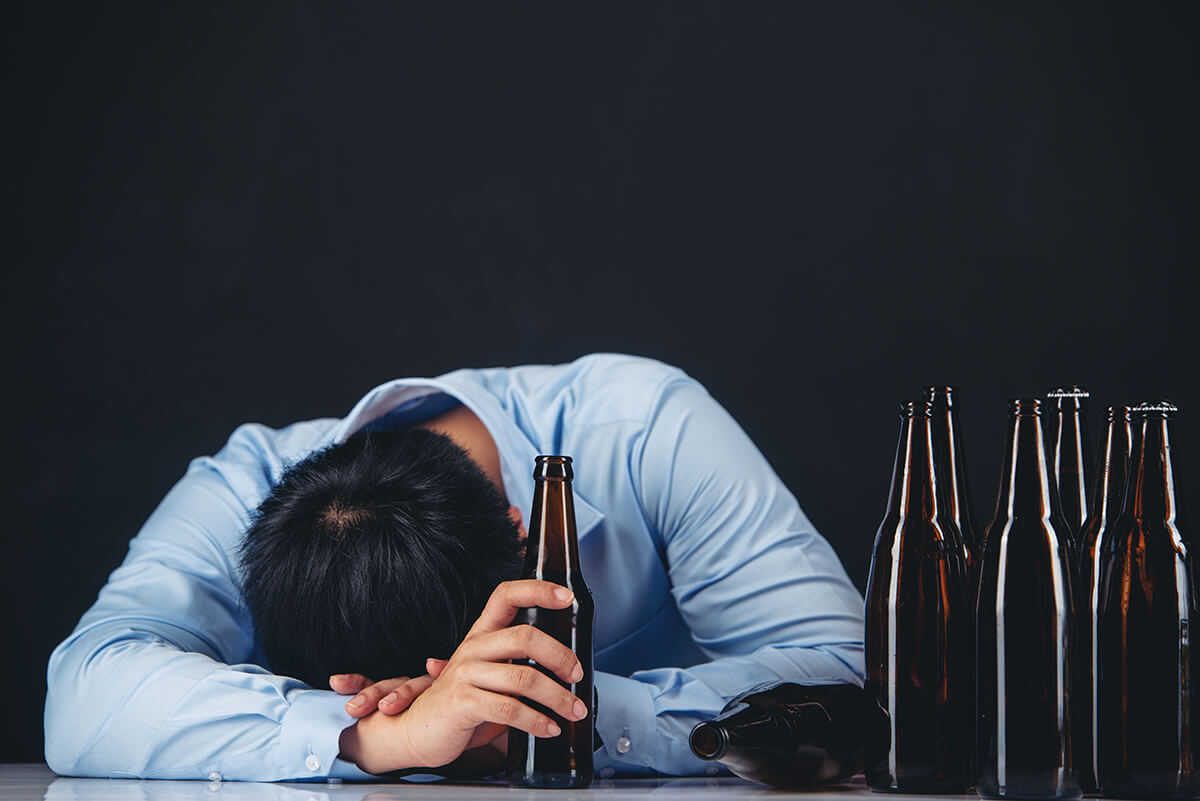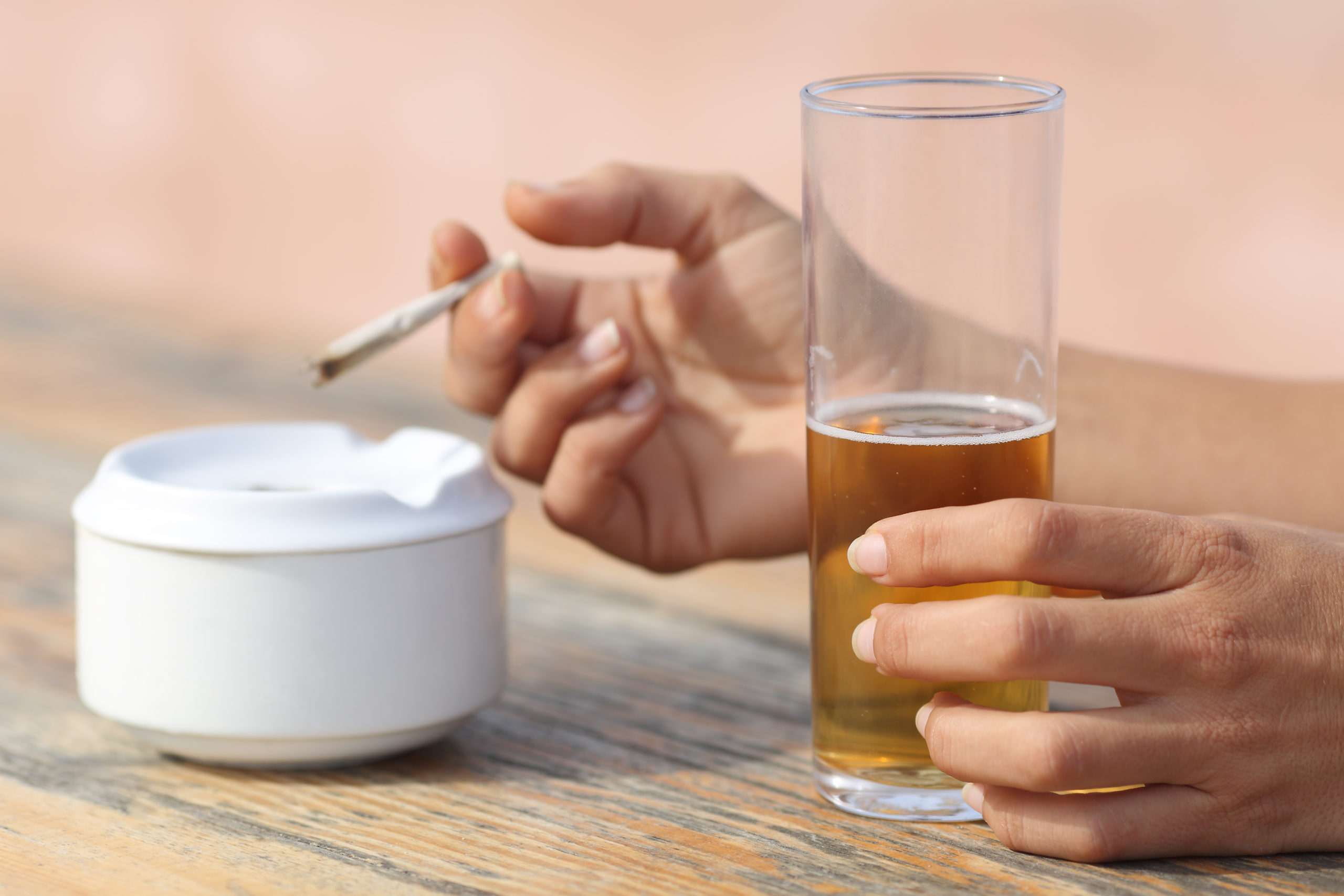Mixing Alcohol and Antidepressants
Managing mental health with antidepressants can be life-changing, but mixing them with alcohol introduces serious risks. Alcohol can disrupt the way antidepressants work, leading to unintended side effects or even worsening your mental health. Knowing these dangers is vital if you’re on a path to healing. At Legacy Healing Center, we provide support through personalized alcohol detox and addiction programs to help you overcome these challenges safely.
Dangers of Drinking While On Antidepressants
Alcohol disrupts the brain chemistry that antidepressants are designed to balance. Combining the two can throw this balance into chaos. The risks of mixing alcohol and antidepressants include:
- Enhanced Side Effects: Antidepressants can cause sedation or drowsiness. As a central nervous system depressant, alcohol can make these symptoms much worse. Combining alcohol with antidepressants can also impair motor skills and coordination, increasing the risk of accidents or falls.
- Reduced Effectiveness: Alcohol can alter the way your body metabolizes medications, which may result in either diminished therapeutic effects or more pronounced side effects. Antidepressants need a stable environment to work well, and alcohol disrupts that. This disruption could mean longer recovery times or worsening depression symptoms.
- Emotional Struggles: Alcohol is a depressant, and as such, it suppresses certain brain areas (such as those involved in impulse control, reasoning, and emotion regulation), which can lead to mood changes. Initially, alcohol may seem to elevate mood because it dampens inhibitions and lowers anxiety, but more alcohol consumption can amplify feelings of sadness or anxiety, which may even lead to harmful thoughts.
Can You Drink While Taking Antidepressants?
The safest answer is no; it’s not worth the risks. While occasional, light drinking might be safe for some people on antidepressants, regular alcohol use is generally discouraged. Always consult your doctor to understand the specific risks and recommendations for your antidepressant medication. Your mental health treatment is essential, and protecting it with good habits, including being mindful of alcohol, is an integral part of your recovery process.
Legacy Healing Center provides essential support in managing and overcoming the complex interaction between alcohol and antidepressants. With alcohol addiction treatment, therapy, and a supportive network, patients can gradually regain control over their brain chemistry, allowing antidepressants to work more effectively and reducing the risk of relapse into substance use.
How Different Types of Antidepressants Are Affected By Alcohol
While there are several common side effects, such as the worsening of sedative effects, the interaction between alcohol and different types of antidepressants can vary depending on the class of medication, as each type works in a unique way to regulate brain chemistry. Alcohol can interfere with the effectiveness of antidepressants, exacerbate side effects, and, in some cases, cause dangerous interactions. Here’s an overview of how different types of antidepressants are affected by alcohol:
Selective Serotonin Reuptake Inhibitors (SSRIs)
Common SSRIs: Fluoxetine (Prozac), Sertraline (Zoloft), Citalopram (Celexa), Escitalopram (Lexapro)
Selective serotonin reuptake inhibitors (SSRIs) are some of the most common antidepressants. They aim to regulate mood by increasing serotonin levels, but alcohol interferes with serotonin receptors.
Drinking alcohol with SSRIs can increase the risk of serotonin syndrome, a life-threatening condition caused by an excess of serotonin in the brain. Although serotonin syndrome is rare, the risk can be higher when alcohol interacts with medications that affect serotonin levels.
Serotonin-Norepinephrine Reuptake Inhibitors (SNRIs)
Common SNRIs: Venlafaxine (Effexor), Duloxetine (Cymbalta), Desvenlafaxine (Pristiq)
SNRIs balance serotonin and norepinephrine to improve mood and energy, but alcohol can lower their effectiveness and disrupt the regulation of these neurotransmitters, leading to mood instability and other side effects.
Venlafaxine, in particular, is known to increase blood pressure at higher doses. When combined with alcohol, alcohol-induced widening of blood vessels and the stimulant effects of alcohol can cause fluctuations in blood pressure, potentially leading to dizziness, fainting, or other cardiovascular issues.
Tricyclic Antidepressants (TCAs)
Common TCAs: Amitriptyline (Elavil), Nortriptyline (Pamelor), Imipramine (Tofranil)
TCAs affect various neurotransmitters, including serotonin and norepinephrine. Alcohol can increase the risk of TCA toxicity (when a person takes too much of a tricyclic antidepressant), which can result in severe side effects like heart arrhythmias, low blood pressure, seizures, or even death. TCAs have a narrow therapeutic window, meaning that the difference between a therapeutic dose and a toxic dose is small; alcohol can make this more difficult to manage.
Monoamine Oxidase Inhibitors (MAOIs)
Common MAOIs: Phenelzine (Nardil), Tranylcypromine (Parnate), Isocarboxazid (Marplan)
MAOIs work by inhibiting the enzyme monoamine oxidase, which breaks down neurotransmitters like serotonin, dopamine, and norepinephrine. Alcohol contains tyramine, particularly certain types like beer, wine, and fermented drinks. This naturally occurring compound can cause a hypertensive crisis (a dangerous rise in blood pressure) when consumed with MAOIs. A hypertensive crisis can lead to severe headaches, chest pain, stroke, and even death.
Because MAOIs increase serotonin levels in the brain, alcohol can also increase the risk of serotonin syndrome, especially when consumed in large quantities.
Atypical Antidepressants
Atypical antidepressants like bupropion, mirtazapine, and trazodone have varying effects; alcohol can exacerbate side effects like sedation, confusion, and mood instability while also increasing the risk of serious conditions like seizures and overdose.
- Bupropion (Wellbutrin): Alcohol can increase the risk of seizures, especially in people who consume large amounts of alcohol or who have a history of seizures. Bupropion lowers the seizure threshold, and when combined with alcohol, it can trigger seizures more easily. Additionally, alcohol can worsen the mood and anxiety symptoms that bupropion is intended to treat.
- Mirtazapine (Remeron): Mirtazapine has sedative effects, and alcohol can enhance these effects, leading to excessive drowsiness, dizziness, and confusion. This increases the risk of falls, accidents, and impaired decision-making.
- Trazodone (Desyrel): Trazodone is commonly used for insomnia in addition to depression, and alcohol can enhance its sedative effects. These effects can lead to extreme drowsiness, risk of overdose, and difficulty waking up from sleep.
The Long-Term Consequences of Mixing Alcohol and Antidepressants
While short-term risks are concerning, the long-term effects of mixing alcohol and antidepressants can be far more detrimental to both physical and mental health. Over time, regularly combining alcohol with antidepressant medications can have a profound impact on the brain’s chemistry and overall well-being, including:
- Deeper Mental Health Struggles: Drinking on antidepressants can create a cycle where both your mental health and your substance use problems get worse.
- Physical Health Risks: Prolonged use of alcohol while on antidepressants increases the likelihood of liver damage, cardiovascular issues, and other chronic conditions.
- Dependency Risks: Alcohol dependency becomes more likely when it’s used to cope with medication side effects, creating a dangerous habit that’s hard to break.
At Legacy Healing Center, we help individuals navigate this journey with targeted alcohol detox programs that provide a safe, supportive way to eliminate alcohol from their lives. Our rehab facilities across the country provide resources and treatments tailored to those facing these challenges, whether it’s for alcohol use, mental health, or both.
How Legacy Healing Center Can Help
At Legacy Healing Center, we believe recovery is about more than just treating symptoms; it’s about creating a healthier, more fulfilling life. We understand that overcoming addiction or mental health challenges requires more than just managing the immediate symptoms. While we prioritize helping patients stabilize and alleviate distressing symptoms, our true focus is on fostering long-term healing and supporting individuals in building the life they truly want and deserve.
Recovery is not simply about the absence of substance use or mental health symptoms but rather about the restoration of physical, mental, emotional, and spiritual well-being. At Legacy Healing Center, we take a holistic approach to addiction treatment. We know that to truly heal, you must address the whole person, not just the addiction or disorder. We guide individuals on a transformative journey through our comprehensive programs, including:
- Alcohol Detox Programs: A safe, medically supervised way to detox from alcohol
- Alcohol Addiction Programs: Addiction therapies and resources to address the root causes of your drinking
- Dual Diagnosis Care: Specialized co-occurring disorders treatment for those dealing with both mental health disorders and substance use
We create treatment plans tailored to your needs, all in a compassionate and supportive environment.
Take the First Step Toward Recovery
Mixing alcohol and antidepressants is a risk you don’t need to take, especially when help is available. Legacy Healing Center is here to guide you toward recovery with rehab programs designed to address your unique challenges.
You don’t have to face this alone. Legacy Healing Center is here to help every step of the way. Contact us to learn how our alcohol detox and addiction programs can help you on your journey to better health. Check out our blog for more guidance and advice.
Related Readings:




